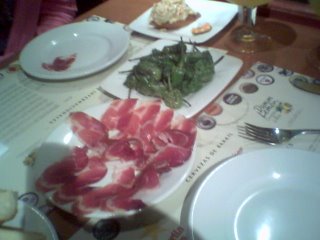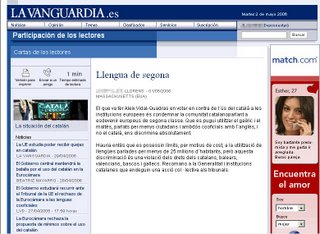Dutch are well known for their water related civil engineering and their liking for water sports. This combination has also made Dutch become leaders in male urinal innovation (Japanese lead the female related R&D).
Barcelona mayor Clos, in his civic drive, should visit the Netherlands and learn some of the key elements that make civism and human nature compatible. Some of the solutions are simple and, at the same time, ground breaking. As an example I will give the fly engraved in Schiphol airport urinals. Airport statisticians working in the janitor department report that the amount of spilt urine has gone down by 80% what had as a consequence a reduction in force of 20% of the janitor crew and 30% reduction of the cleaning chemicals used to wipe out such a corrosive substance. Between you and me, it is also fun aiming at the little insect.
a consequence a reduction in force of 20% of the janitor crew and 30% reduction of the cleaning chemicals used to wipe out such a corrosive substance. Between you and me, it is also fun aiming at the little insect.
But this is not all, partying Dutch males who after drinking an undisclosed amount of beers need to give back to nature what they ingested, can make use of the highly sophisticated portable urinals strategically located near bars and other alcohol serving entities, as you can see in the picture. There have been some sightings of females using this facility, although no documented proof has been provided. For the time being, I consider it a pure rumor.
However I would like to warn mayor Clos not to go on a shopping spree and buy this standard equipment from The Netherlands. With my 5 ft 11", I find it sometimes difficult to use the Dutch urinals who have been designed for the Dutch, who are, in general, 4 to 6 inches taller than the Catalans. So, Mayor Clos, please buy a customized version. Otherwise so much pulling and stretching may result in infertility problems which may reduce, even more, the dwindling birthrate in Catalonia.
urinals who have been designed for the Dutch, who are, in general, 4 to 6 inches taller than the Catalans. So, Mayor Clos, please buy a customized version. Otherwise so much pulling and stretching may result in infertility problems which may reduce, even more, the dwindling birthrate in Catalonia.
Out of modesty, I will not comment on the Japanese innovations for female users of the lavatory facilities. Fake waterfall background music to mask physiological noises and remote controlled joysticks to direct the toilet bowl water jet, are things I have no experience with.
Barcelona mayor Clos, in his civic drive, should visit the Netherlands and learn some of the key elements that make civism and human nature compatible. Some of the solutions are simple and, at the same time, ground breaking. As an example I will give the fly engraved in Schiphol airport urinals. Airport statisticians working in the janitor department report that the amount of spilt urine has gone down by 80% what had as
 a consequence a reduction in force of 20% of the janitor crew and 30% reduction of the cleaning chemicals used to wipe out such a corrosive substance. Between you and me, it is also fun aiming at the little insect.
a consequence a reduction in force of 20% of the janitor crew and 30% reduction of the cleaning chemicals used to wipe out such a corrosive substance. Between you and me, it is also fun aiming at the little insect.But this is not all, partying Dutch males who after drinking an undisclosed amount of beers need to give back to nature what they ingested, can make use of the highly sophisticated portable urinals strategically located near bars and other alcohol serving entities, as you can see in the picture. There have been some sightings of females using this facility, although no documented proof has been provided. For the time being, I consider it a pure rumor.
However I would like to warn mayor Clos not to go on a shopping spree and buy this standard equipment from The Netherlands. With my 5 ft 11", I find it sometimes difficult to use the Dutch
 urinals who have been designed for the Dutch, who are, in general, 4 to 6 inches taller than the Catalans. So, Mayor Clos, please buy a customized version. Otherwise so much pulling and stretching may result in infertility problems which may reduce, even more, the dwindling birthrate in Catalonia.
urinals who have been designed for the Dutch, who are, in general, 4 to 6 inches taller than the Catalans. So, Mayor Clos, please buy a customized version. Otherwise so much pulling and stretching may result in infertility problems which may reduce, even more, the dwindling birthrate in Catalonia.Out of modesty, I will not comment on the Japanese innovations for female users of the lavatory facilities. Fake waterfall background music to mask physiological noises and remote controlled joysticks to direct the toilet bowl water jet, are things I have no experience with.





